by Ray Linville
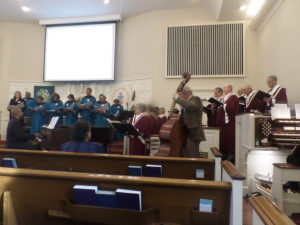
In 1963, Dr. Martin Luther King Jr. eminently said, “ . . . the church is still the most segregated major institution in America. At 11:00 on Sunday morning… we stand at the most segregated hour in this nation.” Although much has changed in the intervening years, much still needs to be done to improve race relations, as seen by congregations and their denominations that have racial understanding, dialogue, reconciliation and equality among their goals and values.
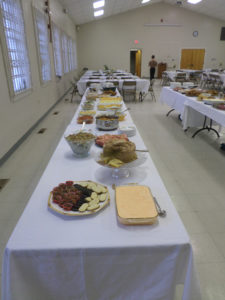
In North Carolina and elsewhere in the South, the long journey to achieve racial equality has often involved food. “Powerful narratives of food,” as Prof. Marcie Cohen Ferris explains in her book The Edible South, tell as much about our values as they tell who joins us at the table and what we eat. “I’m Gonna Sit at the Welcome Table,” a song of the Civil Rights Movement that was adapted from an African-American spiritual, expresses the view that equality includes the right to eat with others – and be welcome.
In Aberdeen, in southern Moore County, a welcome table brought three seemingly disparate congregations together, all without a lot of publicity or fanfare. The event was called “Jubilee, an occasion of rejoicing.” It began with a service of music. Choirs, soloists, and congregations joined together in a variety of songs, which was followed by a shared supper served at a welcome table. Although music was important in bringing the congregations and others in the community together, sharing food and sitting together were equally central parts of the event.
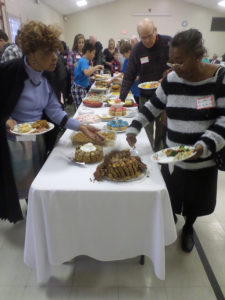
Bethesda Presbyterian Church in Aberdeen with a predominately white congregation was the host. Guests were two local primarily African-American congregations: members of Ministry of Deliverance and Trinity African Methodist Episcopalian (AME) Zion Church. Of significance is that an earlier church building of the host had a slave balcony used by ancestors of African-American residents before the end of the Civil War.
Bethesda, the home church of early Scottish settlers in the Sandhills, has played a vital role in the area. “For more than 100 years, Bethesda was the only permanent church structure in this part of Moore County,” said church historian Kristy Ransdell in 2013 when interviewed for the church’s 225th anniversary celebration. As such, it was also the church for enslaved African-Americans who labored in the fields and businesses before Emancipation.
In 1860, the Bethesda congregation built a new two-story frame meeting house, its third building since early Scottish settlers began holding worship services in the late 1700s. Now known as Old Bethesda, it is on the National Register of Historic Places. In the historical documentation, construction specifications for the second level describe “a gallery for the slaves to worship.” Annual Bethesda homecoming services are held annually at Old Bethesda to “revitalize the congregation’s appreciation of their religious heritage and their Scottish origin.”
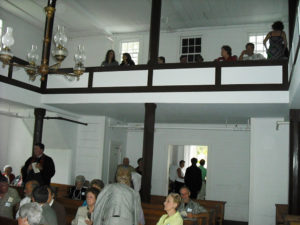
With the arrival of Emancipation, African-American congregants like others in the South left the church of their masters to form their own, which they named Faith Presbyterian in expression of their faith in God as well their hope for the future. In a small step to acknowledge wrongs, the land for Faith was deeded by a Bethesda member. Over the years Faith eventually dissolved as a Presbyterian church, but its church building, built in 1867, has continued as the home for other principally African-American congregations. Ministry of Deliverance is now the successor congregation worshipping in the historic structure and a present-day link to the Faith congregation whose lives were so interwoven with the lives of Bethesda members.
In his “I Have a Dream” speech, King envisions a future where “sons of former slaves and sons of former slave owners will sit down together at the table of brotherhood.” After the music program was over, the table of that dream was ready for all to enjoy. Listening to the voices of the combined choirs was special, but finding myself in a chair at the table of brotherhood once only a dream was amazing.
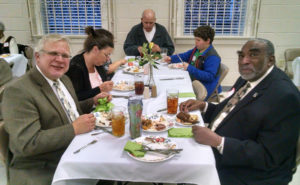
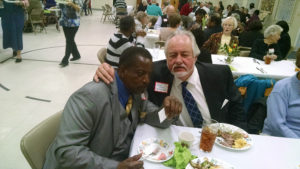
I welcome all of the posts. Since I am a North Carolinian who now lives in Virginia, these articles allow me to stay connected to home.